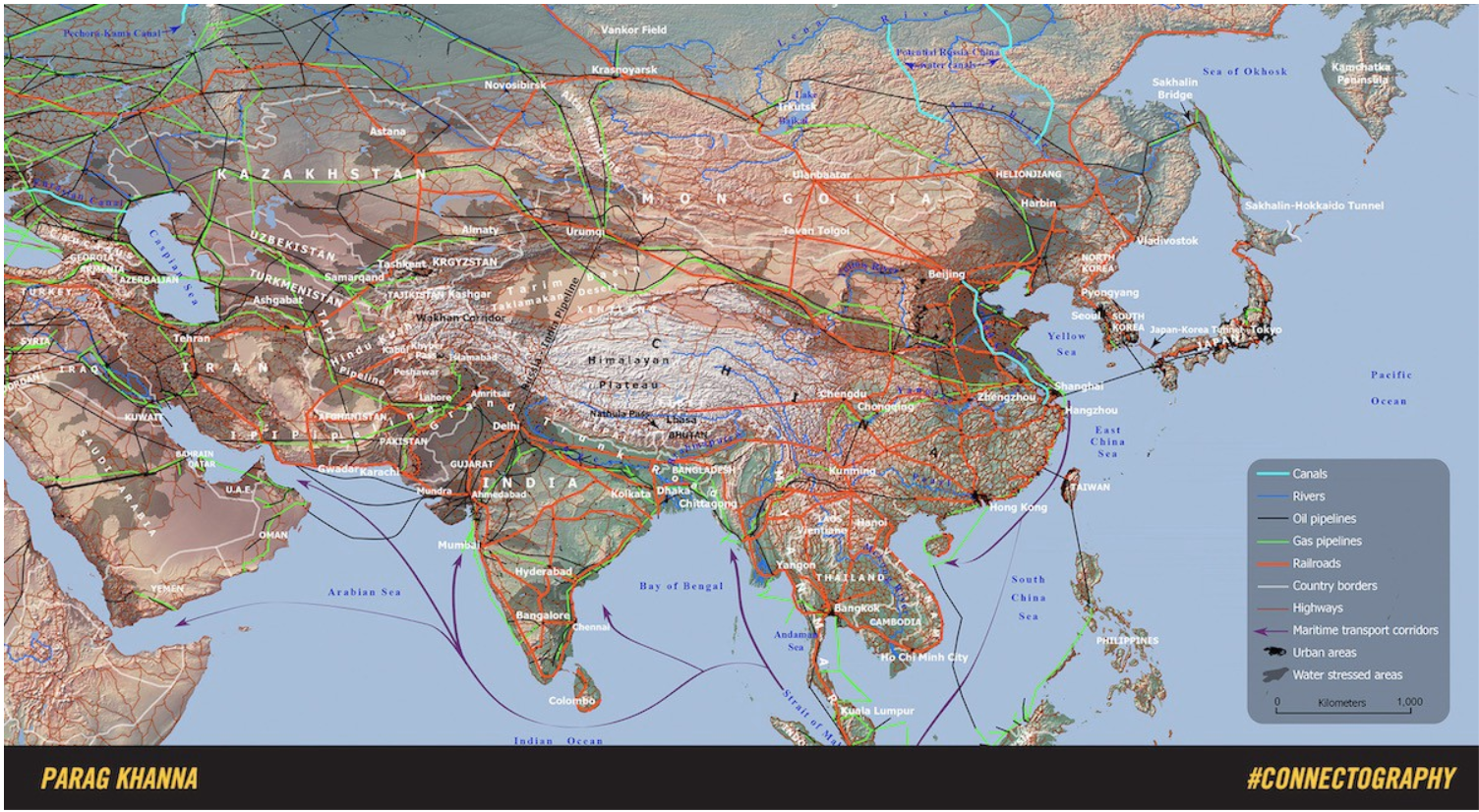How Connectedness is Revamping the World Map
The Spatial Networks |

By Coleman McCormick
Borders in today’s world are remarkably static, ever-present lines we all get used to separating territories as if there are hard barriers to interaction between the multicolored countries of your average political map of the world. This level of stability can be attributed to the interconnectedness of modern global society. In Connectography, Parag Khanna makes a compelling case for the dissolving relevance of international borders. His thesis is that cities are now the dominant focal point of human engagement and productivity rather than states, and that the grid of connection points between cities has largely superseded the importance of international borders: “a future shaped less by national borders than by global supply chains, a world in which the most connected powers — and people — will win.”